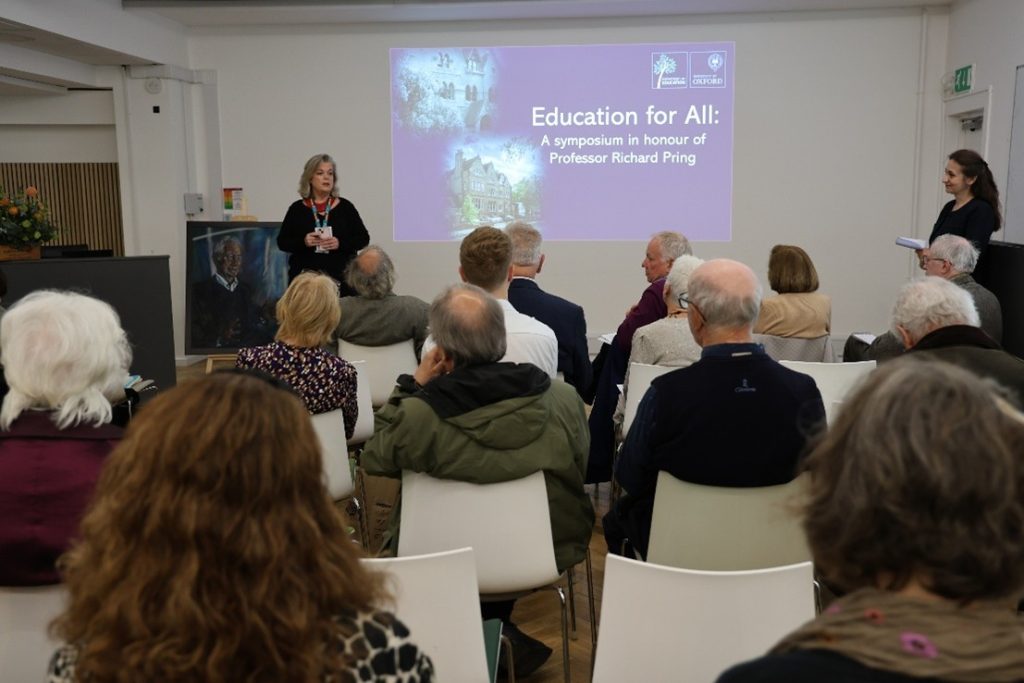Statement from the PGCE Course Director
PGCE Course Director, Dr Katharine Burn, said: “Following the publication of the revised Initial Teacher Training and Early Career Framework, we have some concerns about its robustness and effectiveness in addressing the recruitment and retention crisis in our schools.
“As an Initial Teacher Education provider, we pride ourselves on developing well-informed, passionate and thoughtful professionals who are ready to face the realities of the classroom and the critical judgements that they will need to make to drive forward the learning of all young people.
“We had hoped for a fully collaborative process, leading to a framework which would allow us to deliver the ITT to the highest standard. However, the latest iteration of the framework falls short of fully allowing us to do this. Sadly, it continues to be based on a limited research base.
“While some improvements have been made, we feel strongly that the framework needs further revision to avoid conveying the impression that there is a single guaranteed method of teaching every topic to every child or young person. Effective teaching in a rapidly changing and uncertain world requires the ability to evaluate how things are going and adapt in response to the needs of particular learners. It also requires confident use of a range of evidence.
“In presenting a single three-year framework greater clarity is also needed about the specific responsibilities of initial teacher education providers – whose teacher education programmes only last for a single year.
“We hope that further improvements can be made to the framework to address the concerns raised by us and a number of other providers.”
Statement from the Department
Following on from the concerns already expressed within the Education media about the potential effectiveness of the newly revised ITTECF – we offer a fuller statement here, explaining why the Department of Education at the University of Oxford is so disappointed by its content and our concerns about its failure to address the ongoing teacher recruitment and retention crisis.
First, we should note that several individual features of the new framework are to be welcomed. These include:
- A stronger focus on providing appropriate support for students with special educational needs and disabilities (SEND).
- An implicit acknowledgement (in accepting that some pupils may need ‘tailored’ approaches within a school’s behaviour policy) that teaching policies and practices sometimes have to be adapted in response to the needs of particular individuals.
- An explicit recognition of the importance of oracy – the development of children’s capacity to express their knowledge and understanding and their ideas and to explain why they think as they do.
- An acknowledgement that pupils’ experiences of school and their readiness to learn can be impacted by their home life and circumstances – by implication recognising that the nature of the task that teachers face will vary and the way in which they plan for their pupils will have to take into account the particular challenges faced by those with caring responsibilities or living in poverty.
- Increased attention paid to the need for teachers to think critically about the nature of the research on which they are being encouraged to draw.
Unfortunately, the very fact that these changes can be neatly identified by tracking through the document (as the DfE itself has done) to note the addition of a few words or occasional new element, demonstrates that the fundamental assumptions on which the document itself rests remain essentially unaltered from those that underpinned its predecessors.
In our opinion, the essential curriculum for those learning to teach continues to be presented not as a framework (as its title might lead us to expect), with a well-defined rationale and coherent theoretical underpinnings, but as a series of atomised statements, essentially to be learned as distinct factual propositions, and then neatly applied. No attempt has been made to recognise the importance of subject specificity (beyond a very particular approach to the early teaching of reading). No consideration has been given to the question of how different elements might be related to, or depend on one another, and thus to provide coherent principles that might underpin the decisions and choices that beginning teachers quickly encounter when faced with real children and their complex lives. It is naive to represent the process of teaching as the practice of a series of individual techniques that can apparently be reproduced in any situation, regardless of what is to be learnt. In our opinion, therefore, the framework does not adequately support new teachers to deal with the realities of their job and thus risks setting them up to fail.
A second profound concern relates to the decision to merge the two frameworks together into a single document. While it is obviously important that there should be a coherent thread running through the two phases of professional preparation, the lack of defined progression within the new combined version makes it impossible to plan coherently for teachers’ learning over time (and thus to avoid unnecessary – and often tedious – repetition) or to assure the quality of what is offered at each separate stage. Just as we would expect all teachers to learn how to structure a coherent curriculum providing planned progression for their students, so we had hoped that the DfE would seek to apply coherent principles of curriculum sequencing to its own framework for teachers’ learning.
Publication of the new framework is accompanied by recognition of the burden that the existing ECF (and associated mentor training) placed on the experienced colleagues required to act as mentors for teachers in their first two years of practice. This recognition would be welcomed if it appeared to acknowledge the expertise that skilled mentoring demands, and that many mentors already bring to the role. Instead, however, it is implied (in the DFE document reporting the outcomes of its review) that the support that mentors might need to tailor the framework to the needs of individual teachers, or to the teaching of particular subjects, should be sourced from Oak National Academy, whose work has focused on the production of scripted materials that others merely deliver. It thus tends towards further de-professionalisation of teaching. The prospect becomes one of further tedious repetition which seems likely only to further exacerbate the current retention crisis.
Despite the wide concerns raised (and even acknowledged by the DfE) about the limitations of the current frameworks, the decisions taken in response to this review process represent a lost opportunity to learn from expertise of established providers, deeply committed to the development of teaching as an intellectual and professional practice underpinned by the best quality research – drawn on sensitively and in context-specific ways.
We therefore join other providers in calling for a delay to the implementation of this particular framework and asking that the time be devoted to a fully collaborative design process intended to produce a genuine curriculum framework for teacher education.











